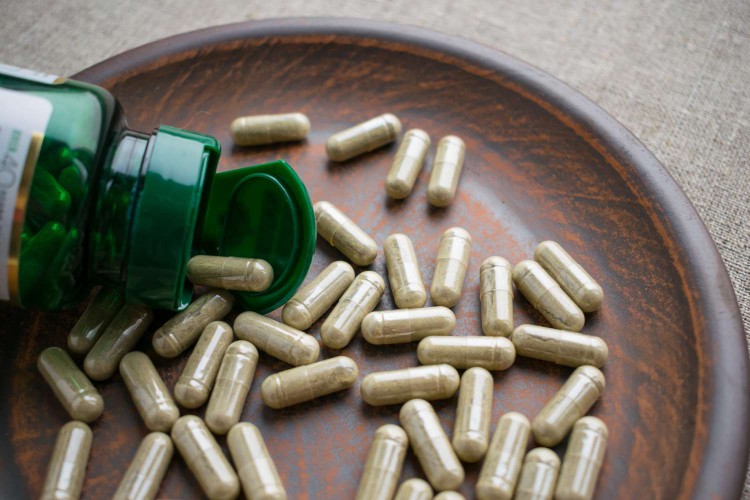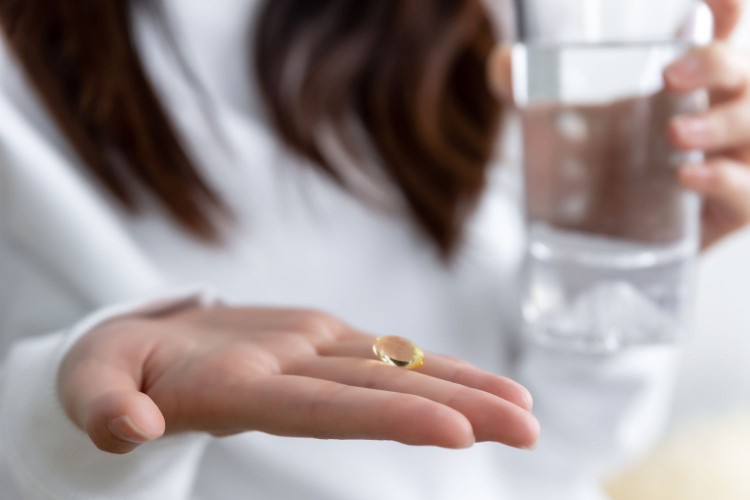
Researchers are reporting that swimming in cold water may reduce stress and anxiety.
Almost one-half of the women in a new study indicated that cold-water swimming helped reduce their anxiety.
Experts say the anxiety reduction could help ease symptoms of menopause.
Swimming in cold water may reduce menopausal symptoms, including stress, hot flashes, and aches, according to a new study published in Sage Journals.
The study included 1,114 women, 785 of whom were going through menopause. All swam in cold water to see if it would reduce symptoms from menopause.
The researchers reported that:
Nearly 47% of the women reported improvement in anxiety symptoms.
34% reported improvement in mood swings.
31% found it helped improve mood.
30% found reduced hot flashes.
Most of the women said they swam explicitly to improve their stress and anxiety. They reported that the exercise was healing and an immediate reliever of stress and anxiety.
One 57-year-old woman described the experience this way: “Cold water is phenomenal. It has saved my life. In the water, I can do anything. All symptoms (physical and mental) disappear and I feel like me at my best.”
“Cold water has previously been found to improve mood and reduce stress in outdoor swimmers, and ice baths have long been used to aid athletes’ muscle repair and recovery,” Joyce Harper, a professor of reproductive science at University College London and a senior author of the study, said in a press release.
“Our study supports these claims. Meanwhile, the anecdotal evidence also highlights how the activity can be used by women to alleviate physical symptoms, such as hot flashes, aches, and pains,” she added.
Other experts agreed the study findings do provide some positive aspects to cold water therapies.
“Swimming in cold water can reduce anxiety, just as many other people participate in regular exercises,” Dr. Jennifer Leighdon Wu, an OB/GYN at Northwell Lenox Hill Hospital in New York who was not involved in the research, told Medical News Today. “I found this study interesting.”
“I am not surprised by the results of the current study,” Dr. Michael Krychman, medical director of Women’s Health Services at MemorialCare at Saddleback Medical Center in California who also was not involved in the study, told Medical News Today. “Swimming is good because it is an exercise where you must focus.”
Experts noted that study might have some biases because the survey addressed women who already swam in cold water and who had previously reported an association between menopause symptoms and cold water swimming.
Improving menopause symptoms through cold swimming
More than 60% of the women in the study swam to relieve their symptoms. Most of them swam in summer and winter. They wore bathing suits, not wetsuits.
In addition to relieving symptoms, the women said they felt cold water swimming improved mental health, increased regular exercise, and gave them time outdoors. The women also felt the positive effects were more pronounced when it was colder.
The researchers also explored whether cold water swimming helped menstrual symptoms. They found:
46% said it improved anxiety.
37% said it helped mood swings.
37% said it improved irritability.
What to know about cold water and exercise
In a press release, Dr. Sharon Hame, an orthopedic sports medicine specialist at UCLA Health in California, said that cold showers can:
Bolster your immunity to the common cold
Increase metabolism
Improve circulation
Reduce anxiety
Relieve depressive symptoms
Risks of Cold Water Therapy
Experts say it’s prudent to talk to your doctor before starting a cold water regiment because there are some risks:
Cold water shock
Infections from polluted water
Starting the Process
Hame made the following suggestions for starting the process in the shower:
Turn your water below 60 degrees.
Start with 30 seconds and slowly increase your time in the water until you reach 2 or 3 minutes.
Alternate between hot and cold. Start with three minutes of a cold shower followed by one minute of hot.
Related pages
Heart health benefits: Fasting-mimicking v Mediterranean diet
Share on PinterestA low-calorie, low-protein, high-fat plant-based diet may offer unique benefits fo

Obesity: Holiday weight gain persists long term, research shows
Share on PinterestOverindulgences over the winter holidays may have long-term effects, some research

2023 in review: Sweeteners, colon cancer, and male birth control
2023 has witnessed no shortage of medical firsts and breakthroughs but has also seen many alarming h

Can You Take Too Much Biotin?
Biotin is a B vitamin involved in metabolism that may have benefits for skin, hair, and nails.Some o

These Personality Traits Linked to a Lower Risk of Dementia
New research has found that people who have the Big Five personality traits of conscientiousness and

Current Vitamin D Recommendations May Not Be Heart Healthy
New research found that many people need more than the recommended dosage of vitamin D to achieve op

